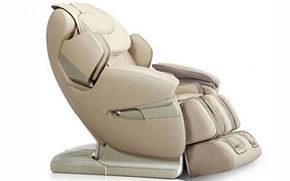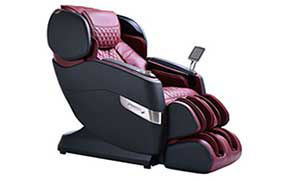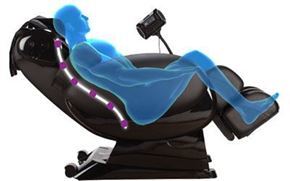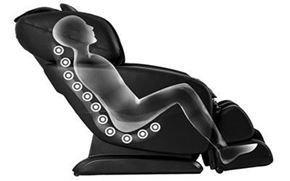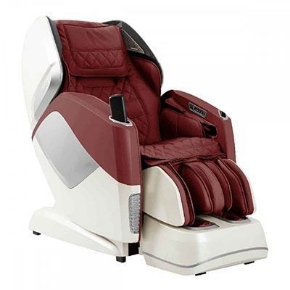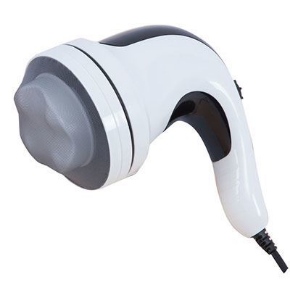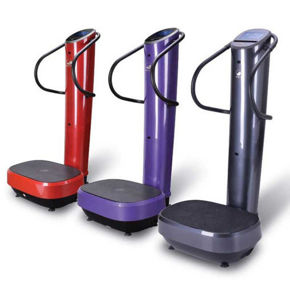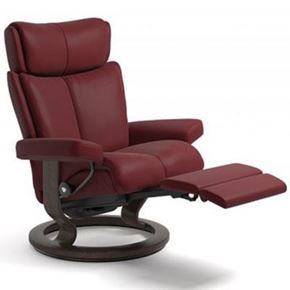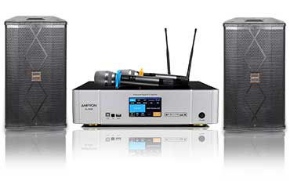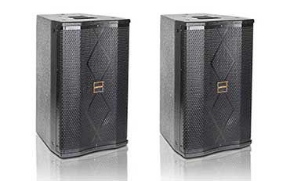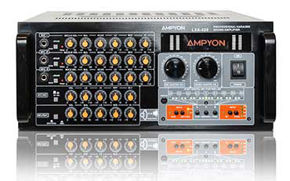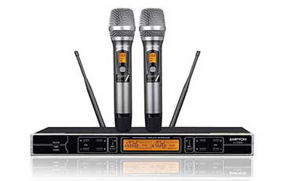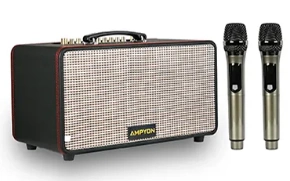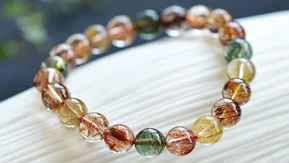Karaoke has evolved from a party novelty into a must-have for home entertainment. Whether you're singing with friends, entertaining family, or just belting out your favorite tunes solo, a quality karaoke system can transform your space into a personal concert venue.
But with so many options on the market in 2025, how do you choose the best karaoke system for your home? This comprehensive guide walks you through the key factors, popular features, and expert tips to help you make the right choice — whether you're a first-time buyer or upgrading your existing setup.
🎤 1. Assess Your Space First
Before comparing models and features, start by understanding where you'll use your karaoke system:
✅ Small Apartments or Limited Spaces
Compact, portable all-in-one systems are ideal. These deliver quality sound without taking up too much room.
✅ Medium to Large Living Rooms
Opt for a system with separate speakers, mixers, and higher wattage to ensure sound fills the entire space.
✅ Outdoor or Mobile Use
Look for battery-powered, portable karaoke speakers designed for outdoor events, backyard parties, or gatherings on the go.
Pro Tip: Always consider how much space your setup, speakers, and microphones will occupy — especially if you want flexibility to move your system around.
🔊 2. Prioritize Sound Quality
The heart of any karaoke experience is great sound. Here’s what to look for:
🎶 Speaker Power (Wattage)
-
For small to mid-sized rooms: 150 to 600 watts
-
For larger spaces or serious parties: 1,000 watts or more
🎶 Audio Equalizer Controls
-
Look for systems with adjustable Bass, Mid, and Treble controls
-
Allows you to fine-tune sound based on room acoustics and personal preference
🎶 Microphone Quality
-
Wireless UHF microphones offer better range and less interference
-
Individual Echo, Bass, and Treble controls ensure each singer sounds their best
🎶 Anti-Howling Technology
-
Prevents feedback and screeching noises for a smooth, professional performance
🎛️ 3. Digital vs. Analog Mixing Amplifier — Which is Right for You?
Mixers control sound balance, effects, and microphone output. Here's how Digital and Analog options compare:
| Feature | Analog Mixing Amplifier | Digital Mixing Amplifier |
|---|---|---|
| Sound Profile | Warm, classic sound | Clean, precise sound |
| Control Type | Physical knobs/sliders | Digital displays, buttons |
| Effects Available | Basic Echo, Reverb | Advanced Echo, Reverb, Delay, Custom Presets |
| User Friendliness | Intuitive, manual | More complex but precise |
| Customization | Limited | Extensive control over sound |
| Price Range | More budget-friendly | Higher price, more features |
| Best For | Traditional karaoke fans | Tech-savvy users, modern setups |
✅ Analog mixers are perfect for those who prefer simplicity and classic sound
✅ Digital mixers are ideal for advanced users wanting full control over sound effects, presets, and performance
Pro Tip: If you’re a beginner, start with analog. If you love detailed sound customization, go digital.
📡 4. Must-Have Connectivity Options
Modern karaoke systems should integrate easily with your devices:
✔️ Bluetooth 5.0 — Stream music wirelessly from phones, tablets, or smart TVs
✔️ HDMI & Optical Inputs — Connect to your TV for on-screen lyrics or video playback
✔️ USB & SD Card Slots — Play downloaded music without relying on Wi-Fi
✔️ Auxiliary (AUX) Inputs — Connect additional devices like keyboards or guitars
Pro Tip: Always check for anti-feedback or anti-howling features to prevent screeching sounds, especially at higher volumes.
🎶 5. All-In-One vs. Separate Component Systems
Your choice depends on space, budget, and performance expectations:
🎤 All-In-One Portable Systems
-
Compact, easy to set up
-
Ideal for small spaces or on-the-go events
-
Usually includes speakers, mixer, and microphone ports
🎤 Separate Components (Speakers + Mixer + Microphones)
-
Offers better sound control and power
-
More suitable for larger rooms or serious karaoke enthusiasts
-
Allows future upgrades of individual components
Pro Tip: If you want flexibility to upgrade your setup over time, choose separate components.
💡 6. Common Mistakes to Avoid
Save yourself frustration by avoiding these rookie errors:
🚫 Underpowered Systems for Large Rooms
-
Choose appropriate wattage based on your space size
🚫 Ignoring Microphone Quality
-
Cheap microphones lead to poor sound and frequent dropouts
🚫 Buying Complex Systems Without Experience
-
Start simple if you're new — too many features can be overwhelming
🚫 No Anti-Feedback Technology
-
Feedback ruins karaoke — prioritize systems with built-in protection
🛠️ 7. Recommended Features for Beginners
If you’re new to karaoke, prioritize:
✅ Wireless Microphones with simple controls
✅ Basic Echo & Reverb effects for vocals
✅ Bluetooth connectivity for easy music streaming
✅ All-in-One designs for quick setup
✅ Anti-Howling technology to prevent feedback
🧳 8. Must-Have Accessories & Add-Ons
Enhance your karaoke setup with these essentials:
✔️ Microphone Stands — Keeps hands free for duets or performances
✔️ Speaker Stands — Optimize sound projection and placement
✔️ HDMI & Optical Cables — Ensure high-quality connections to your TV
✔️ Spare Microphone Batteries — Never let dead batteries ruin the party
✔️ Protective Carrying Cases — Safeguard your portable system during transport
Pro Tip: Investing in good accessories extends the life of your system and improves sound quality.
🛡️ 9. Maintenance & Care Tips
Protect your investment:
🔧 Regular Cleaning — Wipe microphones and surfaces with a soft cloth
🔧 Store Properly — Keep your system in a cool, dry place when not in use
🔧 Check Cables — Inspect connections regularly to prevent damage
🔧 Update Firmware (Digital Systems) — Keep your system performing at its best
❓ 10. Frequently Asked Questions
Q: Do I need an amplifier for a small karaoke setup?
A: Many portable systems have built-in amplifiers, but larger setups with separate speakers usually require a dedicated amplifier for better sound.
Q: Can I use YouTube karaoke videos with my system?
A: Yes, if your system has HDMI or Bluetooth, you can stream YouTube karaoke tracks easily.
Q: What’s the difference between 2-way and 3-way speakers?
A: 3-way speakers have separate drivers for bass, midrange, and treble, offering more detailed sound compared to 2-way speakers.
Q: Are wireless microphones reliable?
A: UHF wireless microphones are stable and preferred for home karaoke due to reduced interference and longer range.
💰 11. Set a Budget — Price Ranges to Expect
💡 Entry-Level ($500 - $1000):
-
Portable speakers, basic microphone setup, ideal for beginners
💡 Mid-Range ($1000 - $2500):
-
Better sound, wireless mics, more connection options, ideal for home parties
💡 Premium ($2500+):
-
High-end sound systems, advanced mixers, separate components for large rooms or events
⭐ 12. Must-Have Features Checklist for 2025
✔️ Bluetooth 5.0 for stable wireless music streaming
✔️ HDMI and Optical Inputs for seamless TV integration
✔️ Built-in Anti-Howling for feedback-free performances
✔️ Separate Echo, Bass, and Treble controls for each microphone
✔️ Music EQ (Bass, Mid, Treble) adjustments for room tuning
✔️ Optional Digital or Analog Mixer based on your preference
✔️ Wireless UHF microphones for stable, clear vocals
🎉 Conclusion: Find the Perfect Karaoke System for Your Home
Choosing the best karaoke system in 2025 depends on:
✅ Your available space
✅ Desired sound quality
✅ Level of control (Analog vs. Digital mixer)
✅ Your budget
✅ Need for portability or fixed installations
For beginners, simple portable systems with wireless mics and Bluetooth may be ideal. Serious karaoke enthusiasts or frequent party hosts may benefit from high-wattage speakers, advanced mixers, and full-featured setups.
By prioritizing sound quality, ease of use, and key features, you can turn any space into a karaoke hotspot — perfect for family fun, parties, and unforgettable performances.

